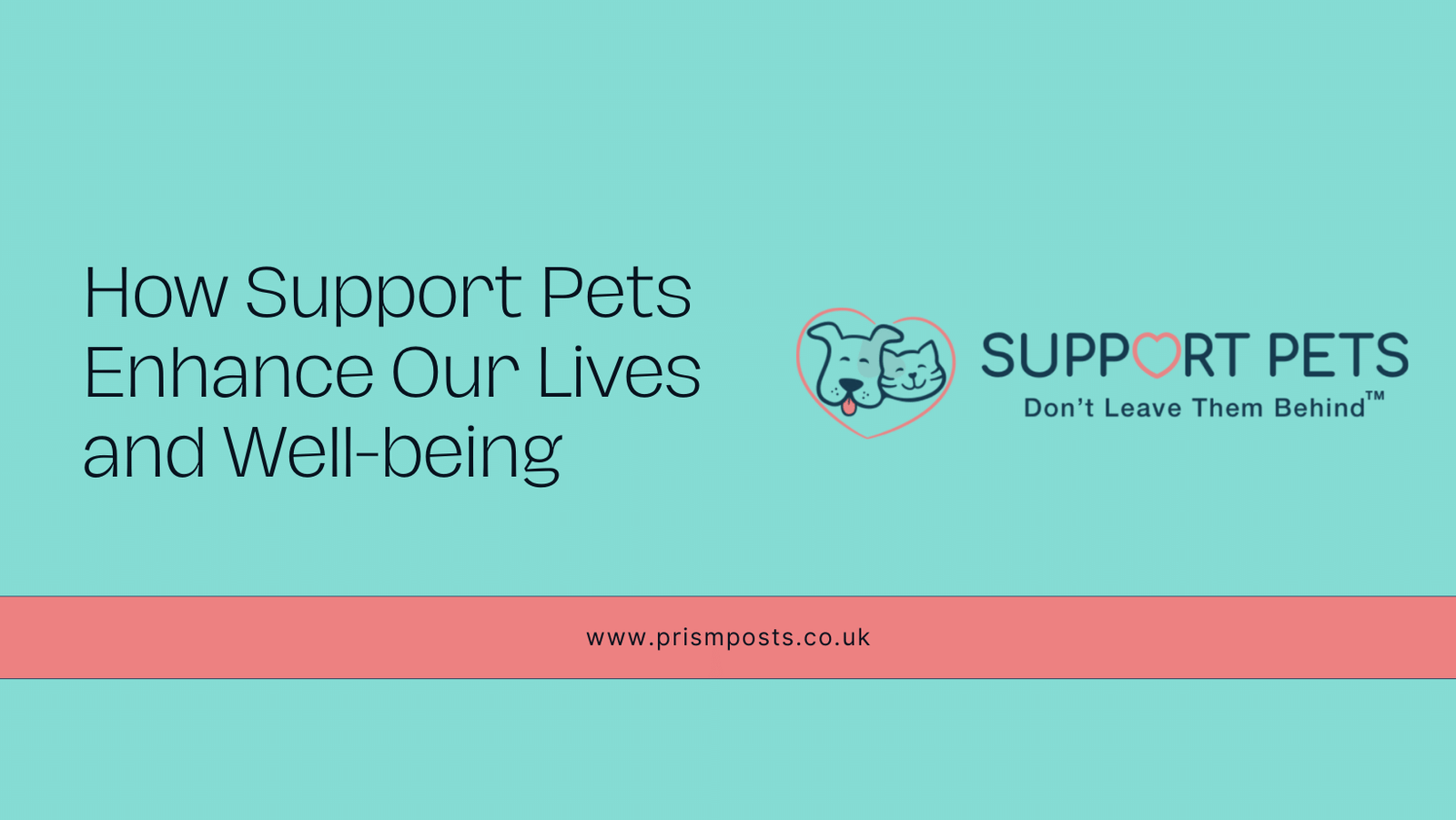In a world that often feels chaotic and fast-paced, there’s a quiet force that brings solace and healing: support pets. These furry companions offer more than just wagging tails and playful antics; they hold the key to our well-being. Let’s delve into the heartwarming world of support pets and explore how they enrich our lives.
The Healing Connection Between Pets and Humans
Unconditional Love and Acceptance
Pets provide a unique form of companionship—one that transcends words. Their unwavering love and acceptance create a safe haven for our hearts.
Reducing Stress and Anxiety
Picture this: a cat purring contentedly on your lap or a dog nuzzling against you. These simple acts trigger a cascade of soothing effects. Studies have shown that petting animals can lower cortisol levels (the stress hormone) and reduce anxiety . It’s like having a built-in stress-relief system!
Boosting Physical Activity
Dogs, in particular, encourage us to step outside, breathe fresh air, and take those extra steps. Whether it’s a leisurely stroll or an energetic game of fetch, our furry friends keep us moving.
Emotional Support
When life throws curveballs, pets are there to catch us. Their empathetic presence helps combat feelings of loneliness and provides emotional stability. For those battling depression or trauma, a pet’s gentle gaze can be a lifeline.
Also Read: How to Choose a Good Vet | 10 Vet Red Flags to Watch Out For
Diverse Modalities of Animal-Assisted Therapy
At-Risk Children
Imagine a child struggling with reading. Now picture a patient listener—a dog—sitting beside them. Animal-assisted therapy in schools helps boost confidence, improve reading skills, and foster emotional resilience.
Psychiatric Patients
Within the walls of psychiatric hospitals, therapy dogs weave magic. They ease anxiety, encourage social interaction, and provide a comforting touch. These four-legged therapists remind patients that they’re not alone in their struggles.
War Veterans
The scars of war run deep, but so does the healing power of animals. Service dogs assist veterans with physical disabilities, while emotional support animals offer solace to those battling PTSD. The bond between a soldier and their loyal companion transcends words.
Prison and Cognitive Therapy Sessions
In correctional facilities, dogs and cats become unlikely mentors. Inmates learn responsibility, empathy, and patience as they care for these animals. The unconditional love they receive fosters personal growth.
Physical and Mental Health Benefits
1. Lowering Blood Pressure and Cholesterol Levels
Pets have a remarkable impact on our cardiovascular health. Studies show that pet owners tend to have lower blood pressure during stressful situations. Additionally, interacting with pets can reduce triglyceride and cholesterol levels, both of which are indicators of heart disease.
2. Boosting the Immune System
The presence of pets stimulates our immune system. Their companionship and touch enhance our overall well-being, making us more resilient to illnesses.
3. Social Facilitators
Pets improve the quantity and quality of socialization. Whether you’re out walking your dog or chatting with fellow pet owners at the park, these interactions provide valuable conversation points and combat loneliness.
Pets and Senior Well-being
Companionship and Routine
For seniors, pets offer companionship that transcends words. Their presence fills empty spaces, providing comfort and a sense of purpose. Daily routines centered around feeding, walking, and caring for pets bring structure to seniors’ lives.
Physical and Mental Health Impacts
Seniors who own pets tend to live longer and experience improved mental health. The joy of a wagging tail or a gentle purr brightens their days, reducing feelings of isolation and depression.
Case Studies and Real-Life Stories
Anecdotal evidence abounds—the child with autism who finds solace in a therapy dog, the elderly woman whose cat keeps her company, the war veteran whose service dog helps him navigate life. These stories remind us that support pets are not just companions; they’re lifelines.
Conclusion
As we reflect on the profound impact of support pets, let’s consider their role in enhancing our well-being. Whether it’s a wagging tail, a gentle nuzzle, or a contented purr, these furry friends leave pawprints on our hearts. Embrace the companionship—they’re healers, confidantes, and silent guardians.
FAQs
Can any type of pet serve as a support animal?
While dogs and cats are the most common support animals, other animals can also play this role. Birds, rabbits, guinea pigs, and even miniature horses have been trained to provide emotional support.
How do I know if my pet qualifies as an emotional support animal (ESA)?
To qualify, you’ll need an ESA letter from a licensed mental health professional. This letter certifies that your pet provides emotional support and is necessary for your well-being.
Are there restrictions on where I can take my support pet?
Laws vary by country and state. Generally, ESAs have certain rights, such as housing and air travel accommodations. However, they may not have access to public places like restaurants or stores. Always check local regulations.
Can exotic pets be support animals?
Exotic animals (such as reptiles or rodents) can be ESAs, but their acceptance depends on individual circumstances. Some landlords or airlines may not allow them due to safety concerns.
What if I’m allergic to pet dander? Can I still have a support pet?
It’s essential to consider your own health. If you’re allergic to pet dander, explore hypoallergenic breeds or consult an allergist. You don’t want your support pet to exacerbate your allergies.
How do support pets benefit children with autism?
Support pets provide emotional grounding and can help children with autism manage anxiety and sensory overload. The consistent presence of a pet can create a calming routine.
What about pet therapy in nursing homes?
Pet therapy programs in nursing homes have shown remarkable results. Seniors benefit from the companionship, reduced loneliness, and increased physical activity that pets bring.

